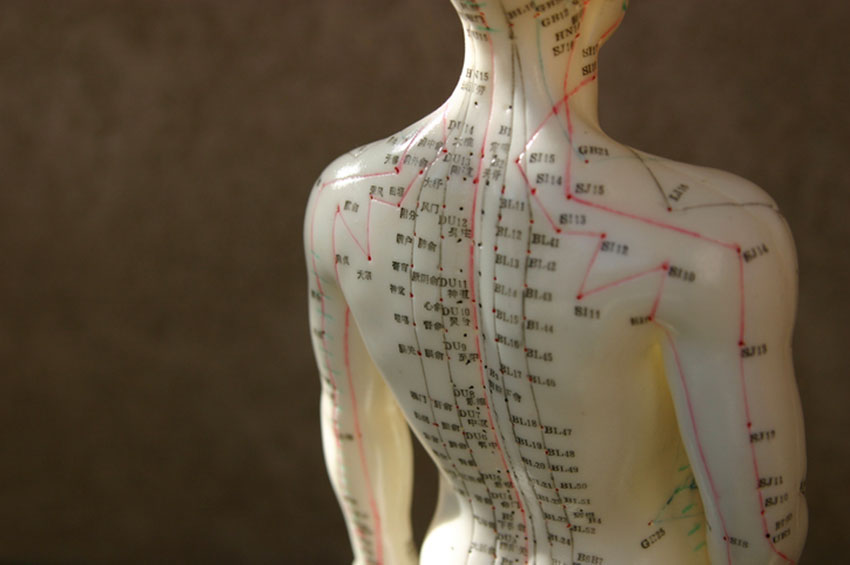-

The mechanisms that underlie how exactly acupuncture relieves pain have been scrutinized in much researched over the past 60 years. Sensory-nerve pathways that involve specialized nerve fibers as well as nervous-system pathways have been displayed and mapped. In addition, many bio-chemicals have been identified, including neurotransmitters such as serotonin and nitric oxide, and opioid and non-opioid neuropeptides.
Acupuncture analgesia can involve many classes of opioid neuropeptides including dynorphins enkephalins and endorphins. Non-opioid neuropeptides play a pivotal role in migraine pathogenesis. These, too, have been exhaustively investigated for contributing to acupuncture’s analgesic and anti-inflammatory effects, according to a report in Evidence Based Acupuncture.
Also identified are numerous biochemical and signaling pathways that play a big role in how acupuncture achieves its effects. However, the most significant central pathway that acupuncture utilizes – the one that helps explain how effective it can be – is how acupuncture can directly initiate a process known as purinergic signaling. This is a system that uses adenosine and ATP to signal and regulate organ and tissue systems.
We now know that nerve transmission needs ATP as a co-factor and that we as humans use purine levels as a critical factor in healthy function and tissue damage. Studies have been done extensively on mice, showing that those bred as unable to bind to adenosine didn’t get pain relief from acupuncture; however, the normal mice did. The effect was replicated in humans later on.
Purinergic signaling has been discovered to play an important role in many clinical areas, such as:
- Migraines
- Headaches
- Immune dysfunction
- Inflammation
- Cancer
- Alzheimer’s disease
- Cardio-vascular disease
- Endocrine function
- Embryological development
Conclusions have been drawn that stimulating improved self-regulation of purinergic signaling via acupuncture is effective and safe.
Studies also show direct correlations of acupuncture on our central nervous systems. These include spinal reflexes to stimulate muscle relaxation and changes in organs. Acupuncture has been shown to change functional connectivity in the brain, lowering stress and illness while boosting regulation of hormones and stress responses.
On top of that, acupuncture has been shown to regulate parasympathetic activity that helps with rest, relaxation, tissue healing and digestion.
Contact Metro Detroit Acupuncture
Here at Metro Detroit Acupuncture, we offer acupuncture treatments that have been clinically proven to treat and relieve a variety of common health problems. To learn more, contact us to schedule your consultation and appointment at 248-432-2846. We are owned and founded by Marino Moutafis, certified acupuncturist licensed by the Michigan Board of Acupuncture who has treated thousands of patients over his career.
How Acupuncture Works: Examining the Mechanisms
Acupuncture Clinic In West Bloomfield Michigan
Acupuncture Treatment And Traditional Chinese Herbal Medicine
Medical Acupuncture And Clinically Proven Chinese Medicine
Copyright © 2023 Metro Detroit Acupuncture, PLLC. All Rights Reserved. Powered by Detroit Internet Marketing. A Michigan SEO Company since 2009.
